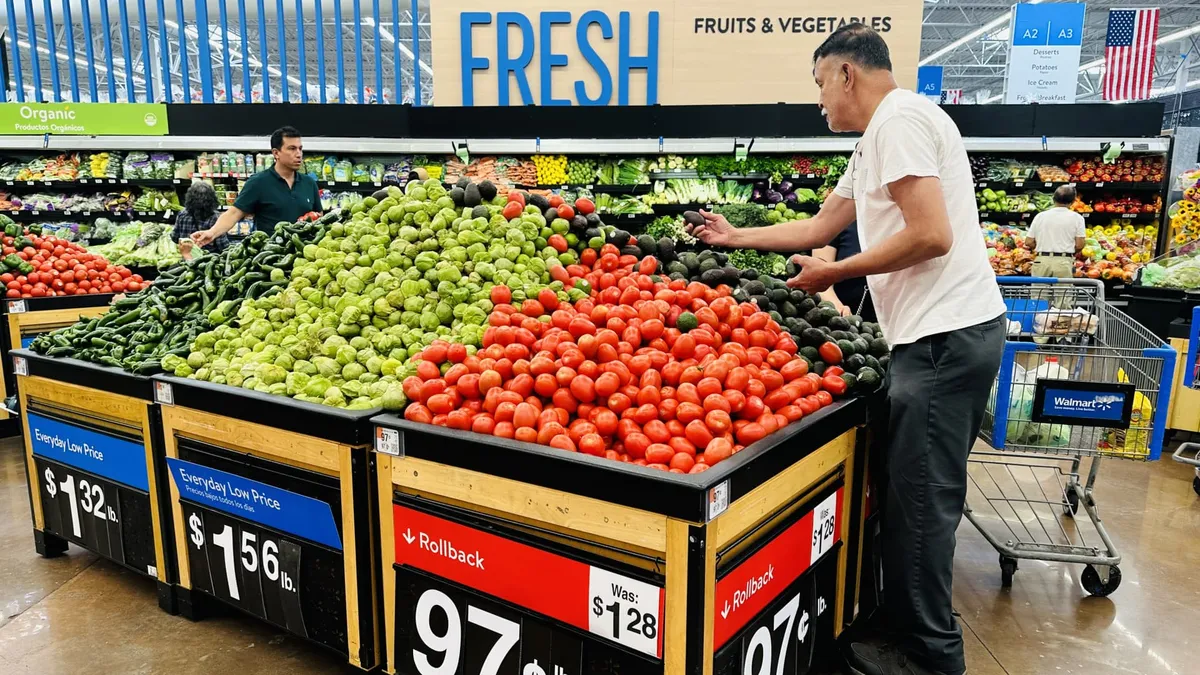
A growing number of Americans are increasingly turning to buy now, pay later (BNPL) loans to manage their grocery expenses, as revealed by new data from Lending Tree released on Friday. This trend indicates that many consumers are feeling the strain of an uncertain economy, grappling with the challenges of persistent inflation, elevated interest rates, and concerns surrounding tariffs. The recent survey, conducted from April 2-3 with a sample of 2,000 U.S. consumers aged 18 to 79, highlights the changing financial behaviors of Americans when it comes to essential purchases like groceries.
According to the Lending Tree survey, approximately half of the respondents reported using buy now, pay later services. Notably, 25% of these consumers indicated that they were utilizing BNPL loans specifically to purchase groceries, a significant increase from 14% in 2024 and 21% in 2023. This shift underscores the growing reliance on BNPL options as a means of managing everyday expenses amidst rising costs.
The survey also revealed a concerning trend regarding late payments on BNPL loans. About 41% of respondents admitted to making a late payment in the past year, an increase from 34% the previous year. Matt Schulz, Lending Tree's chief consumer finance analyst, noted that most respondents who reported late payments did so by just a week or so. "A lot of people are struggling and looking for ways to extend their budget," Schulz explained, emphasizing that ongoing inflation and high interest rates contribute to this financial strain.
Schulz refrained from categorizing these findings as indicators of an impending recession but acknowledged that conditions may worsen before they improve. "I do think it’s going to get worse, at least in the short term," he stated, suggesting that consumers should brace for continued challenges in the economic landscape. With many individuals relying on buy now, pay later loans as a financial lifeline, Schulz cautioned that while these loans can be effective interest-free tools, they also carry significant risks if not managed carefully.
One of the appealing aspects of BNPL loans is that they allow consumers to divide their purchases into smaller, more manageable payments, often without charging interest. However, the survey revealed that consumers may face substantial fees if they miss payments, and complications can arise when they accumulate multiple loans. Alarmingly, 60% of BNPL users reported having multiple loans simultaneously, with nearly a quarter holding three or more at once. Schulz urged caution, stating, "It’s really important for people to be cautious when they use these things." Mismanagement can lead to considerable financial difficulties.
The findings from Lending Tree come at a time when the use of BNPL financing is becoming a topic of discussion across various sectors. For instance, a recent report by Billboard highlighted that approximately 60% of general admission attendees at the Coachella music festival financed their tickets through BNPL loans. This revelation has sparked debates about the current state of the economy and the lengths to which consumers are going to maintain their lifestyles.
Moreover, DoorDash's recent announcement to accept BNPL financing through Klarna for food deliveries has led to humorous commentary on social media, with many joking about the financial struggles faced by consumers who might now be financing their meals. Despite the pressures of inflation and high interest rates, the job market had previously allowed consumers to navigate these challenges relatively well, thanks to wage growth that kept pace with rising costs for some workers.
In conclusion, the rising trend of buy now, pay later loans reflects a significant shift in consumer behavior as individuals seek flexible payment options to manage their essential purchases. However, as reliance on these loans increases, it is crucial for consumers to remain informed and cautious to avoid falling into financial traps.